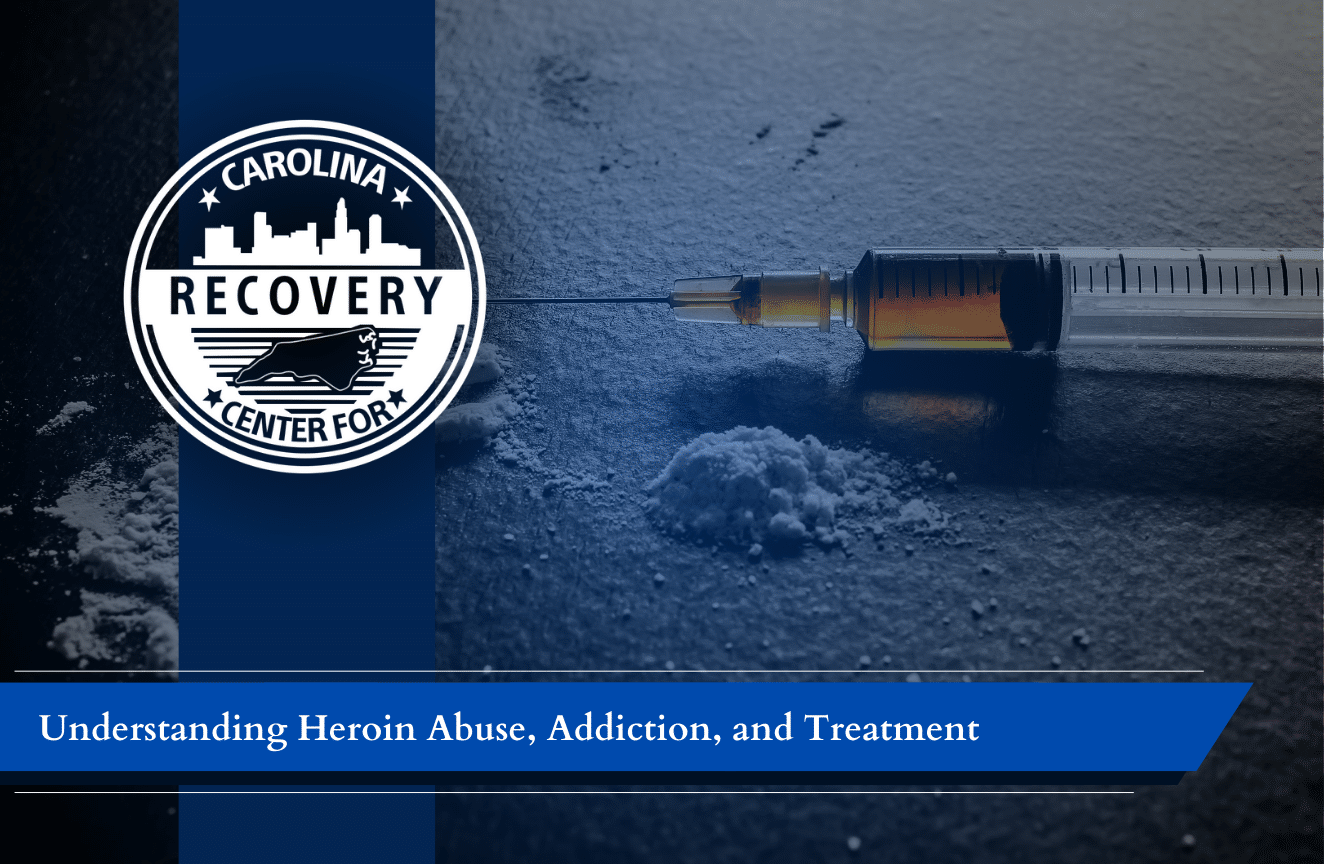


Heroin is a powerfully addictive illicit drug. People who develop heroin addiction often require intensive treatment and ongoing support to safely stop using the drug and develop the skills to maintain sobriety for life.
Heroin addiction is a complex condition that involves a person’s biology, mental and physical health, behaviors, environment, and more. This article will explore how heroin addiction develops, how to identify it, and how it is treated.
Reach out to the team at the Carolina Center for Recovery to learn more about our heroin addiction treatment programs in North Carolina.
Heroin is an illicit drug derived from morphine, which is a product of a specific poppy plant. Heroin is most commonly available as a white or brown powder. Users ingest heroin by heating and then injecting the drug, snorting the powder form, or smoking it.
Heroin dealers often add other substances to powdered heroin, including sugar, starches, powdered milk, or other illicit substances. People who use heroin may be exposed to harmful substances and chemicals without knowing it.
Heroin has a powerful effect on the brain and body. People who use heroin may quickly develop a physical addiction to it. Even those who use it only occasionally may discover that they cannot control their heroin use and require professional treatment and support to stop using it.
Heroin is an opioid drug that binds to opioid receptors in parts of the brain related to pleasure and reward. When people use heroin, their brains release more dopamine, which is a neurotransmitter related to reward.
Quickly after ingesting heroin, users experience intense feelings of warmth, contentment, and pleasure, known as euphoria. Substances that induce euphoria are often highly addictive because users want to take the drug frequently.
After a period of euphoria, heroin users experience feelings of sedation, calm, and reduction in pain. Once these effects wear off, people may want to take more of the drug. Over a period of regular or heavy use, people may develop tolerance, meaning they require more heroin to cause the desired effects. People may start taking greater or more frequent doses, which puts them at increased risk of overdose and often leads to physical addiction.
Recent research from the National Institute on Drug Abuse (NIDA) showed that about 1.1 million people used heroin in 2021, and 1 million were addicted to it. This suggests that most people who use heroin become addicted to it.
But what risk factors make people more likely to develop heroin addiction? Heroin is a highly addictive illicit substance, but certain factors can increase a person’s risk for heroin addiction. They include:
One of the most significant risks for heroin addiction is opioid abuse. Millions of people take prescription opioids to manage pain after a medical procedure, during treatment for chronic conditions, and other medical reasons.
However, prescription opioids have a high potential for misuse, dependence, and addiction. Some people who use prescription opioids–even those who take them exactly as prescribed–may develop tolerance and physical dependence on them.
People who develop prescription opioid abuse or addiction sometimes turn to heroin when they can no longer legally obtain their prescription opioids.
Heroin is an illicit substance with no accepted medical uses. People who use heroin in any amount or frequency must stop taking it to avoid life-threatening complications, including addiction and overdose.
Many people cannot manage heroin detox alone and require medical support to stop using heroin safely. It’s crucial to find comprehensive treatment for heroin addiction as soon as you recognize a problem in yourself or someone you love.
Some of the signs of heroin addiction include:
People with heroin addiction often exhibit extreme changes in the way they look, think, and behave as this potent, deadly drug becomes the center of their lives. Watch for signs of heroin addiction and seek treatment as soon as possible.
Recognizing that each person’s journey with addiction is unique, our heroin addiction treatment plans are tailored to individual needs, considering factors such as co-occurring mental health conditions, trauma history, and personal goals. Treatment may involve:
Heroin addiction is a complex condition with deep roots in many aspects of a person’s life. Comprehensive, compassionate treatment can help people with heroin addiction untangle themselves from heroin and start living the healthy, sober lifestyle they choose.
Reach out to the specialists at the Carolina Center for Recovery now to learn about our heroin addiction treatment programs or for support during any stage of your recovery process.